AQUALITEK Continuous Electrodeionization (CEDI) System for Ultrapure Water
Product Overview
AQUALITEK's Continuous Electrodeionization (CEDI) system produces consistent ultrapure water without the need for chemical regenerants. Designed for laboratories, pharmaceutical, semiconductor, power, and high-purity industrial applications, our CEDI units combine ion-exchange membranes, high-performance resins, and controlled electric fields to remove ionic contaminants continuously and efficiently.
Why Choose AQUALITEK CEDI?
Chemical-free and Sustainable
Our CEDI system regenerates continuously using only electrical energy—no acids or caustic chemicals—reducing operating cost, waste handling, and environmental impact.
Stable Ultrapure Quality
Delivering low and stable conductivity with minimal conductivity spikes, AQUALITEK CEDI ensures reliable water quality for sensitive processes that demand consistent purity.
Energy and Space Efficient
Compact modular design saves floor space and scales easily. Optimized power consumption lowers utility costs while providing high throughput.
Low Maintenance & Easy Integration
The system is designed for simple routine maintenance and quick integration with existing RO or pretreatment systems. Built-in controls and optional monitoring let operators track performance in real time.
Key Benefits
- Continuous ultrapure water production without chemical regeneration
- Consistent low conductivity and high ionic rejection
- Reduced operational costs and environmental footprint
- Modular, space-saving design for flexible installation
- Remote monitoring and user-friendly controls
Applications
AQUALITEK CEDI is ideal for:
- Semiconductor and microelectronics rinsing
- Pharmaceutical manufacturing and formulation
- Laboratory and analytical instruments
- Power plant make-up and boiler feed
- Battery and high-tech manufacturing
About Aqualitek
Aqualitek Water Treatment Technologies Co., Ltd. (AQT), based in Guangzhou, China, specializes in advanced water treatment systems and high-quality components. We provide tailored solutions from pretreatment to core units and recycling systems—backed by engineering expertise and manufacturing excellence.
Get Started
Choose AQUALITEK CEDI for a reliable, efficient, and eco-friendly path to ultrapure water. Contact our sales team for system sizing, customization, and technical support.
Certifications

CTK20211125002MD

CTK20211125002MDAppendix
Frequently Asked Questions
Can I automate the filter cleaning process?
Absolutely. Our automatic backwash filters come with timer-based or differential pressure-triggered controls.
What is the difference between Reverse Osmosis (RO), Ultrafiltration (UF), and Nanofiltration (NF)?
1. Reverse Osmosis (RO): Removes up to 99.9% of contaminants, including salts, bacteria, viruses, and heavy metals.
2. Ultrafiltration (UF): Uses a membrane filtration process to remove bacteria and particles, while retaining essential minerals.
3. Nanofiltration (NF): Falls between RO and UF, removing some salts and organic compounds while allowing certain minerals to pass through.
What is the difference between softening and deionization?
Softening removes only hardness ions (Ca²⁺, Mg²⁺), while deionization removes both cations and anions to produce high-purity water.
Are AQT’s water treatment products certified?
Yes! Our products comply with international quality and safety standards, including ISO, CE, and NSF certifications. We prioritize high-quality materials, advanced technology, and strict quality control to ensure superior performance and reliability.

Electrodeionization Systems to Get UltraPure Water
Electrodeionization (EDI) system is an advanced water purification technology that combines ion exchange and electrochemical processes to produce ultra-pure water. Unlike traditional deionization methods, which rely on chemical regeneration, EDI utilizes electric fields to drive the movement of ions through ion-exchange membranes, effectively removing dissolved salts and other ionic contaminants.
This process is continuous and does not require the use of chemicals for regeneration, making it an environmentally friendly and cost-effective solution for producing high-quality deionized water. EDI systems are widely used in applications requiring ultrapure water, such as in the pharmaceutical, semiconductor, power generation, and biotechnology industries, as well as for laboratory use.
By offering high-purity water without the need for chemical regeneration, EDI systems provide a sustainable, efficient, and reliable alternative to traditional deionization methods, making them an ideal choice for industries where water quality and process control are critical.

Electrodeionization Systems to Get UltraPure Water
Electrodeionization (EDI) system is an advanced water purification technology that combines ion exchange and electrochemical processes to produce ultra-pure water. Unlike traditional deionization methods, which rely on chemical regeneration, EDI utilizes electric fields to drive the movement of ions through ion-exchange membranes, effectively removing dissolved salts and other ionic contaminants.
This process is continuous and does not require the use of chemicals for regeneration, making it an environmentally friendly and cost-effective solution for producing high-quality deionized water. EDI systems are widely used in applications requiring ultrapure water, such as in the pharmaceutical, semiconductor, power generation, and biotechnology industries, as well as for laboratory use.
By offering high-purity water without the need for chemical regeneration, EDI systems provide a sustainable, efficient, and reliable alternative to traditional deionization methods, making them an ideal choice for industries where water quality and process control are critical.

RO Chemical Anti-Scalant for Effective Water Treatment – Prevent Scaling in Reverse Osmosis Systems
Anti-Scalant is a specialized water treatment chemical designed to prevent the formation of scale in reverse osmosis (RO) systems. Scaling is a common issue in RO systems, where minerals like calcium, magnesium, and silica precipitate and form hard deposits on the membrane surface. These deposits can clog the membranes, reduce water production efficiency, and increase operational costs.
RO chemical anti-scalants work by inhibiting the crystallization of scale-forming minerals, effectively keeping them in solution and preventing them from adhering to the membrane. This ensures the longevity and optimal performance of the RO system.
Anti-scalants are essential in applications with hard water or high mineral content, such as in industrial, municipal, and desalination plants.
These chemicals are highly effective in preventing scaling caused by common minerals such as calcium carbonate, calcium sulfate, barium sulfate, and silica, helping to extend the lifespan of the membranes, reduce cleaning cycles, and enhance system efficiency.
By incorporating an RO chemical anti-scalant into your water treatment process, you can improve the reliability and overall performance of your reverse osmosis system, ensuring consistent, high-quality water output while minimizing maintenance costs.

FRP Reverse Osmosis Membrane Housing High-Pressure Explosion-Proof Design for Industrial Watertreatment FRP Series RO Membrane Vessel Housing
AQUALITEK FRP Series Reverse Osmosis Membrane Housing — Fiberglass (FRP) RO Membrane Vessel with high-pressure, explosion-proof design for industrial water treatment. Durable, corrosion-resistant RO membrane housing for reliable plant performance.
© 2026 AQUALITEK. All rights reserved.

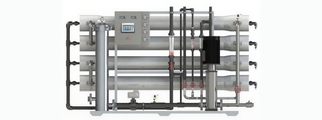
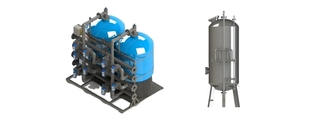
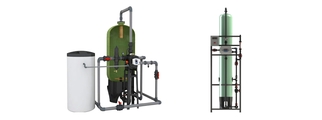
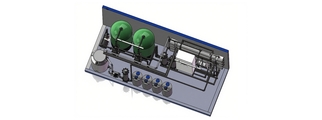
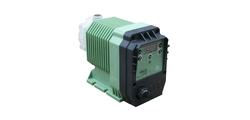
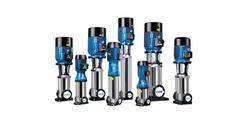
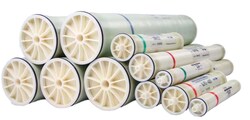
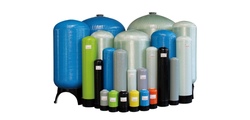
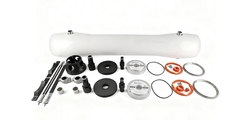
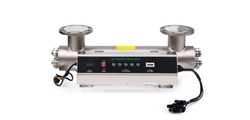
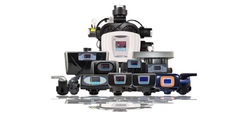
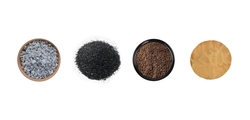
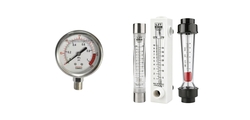
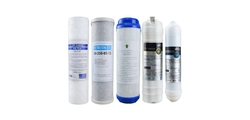
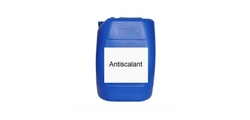
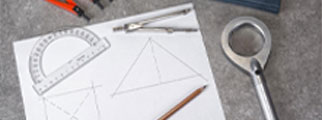




AQUALITEK- Aimee Hoo
AQUALITEK - Aimee Hoo